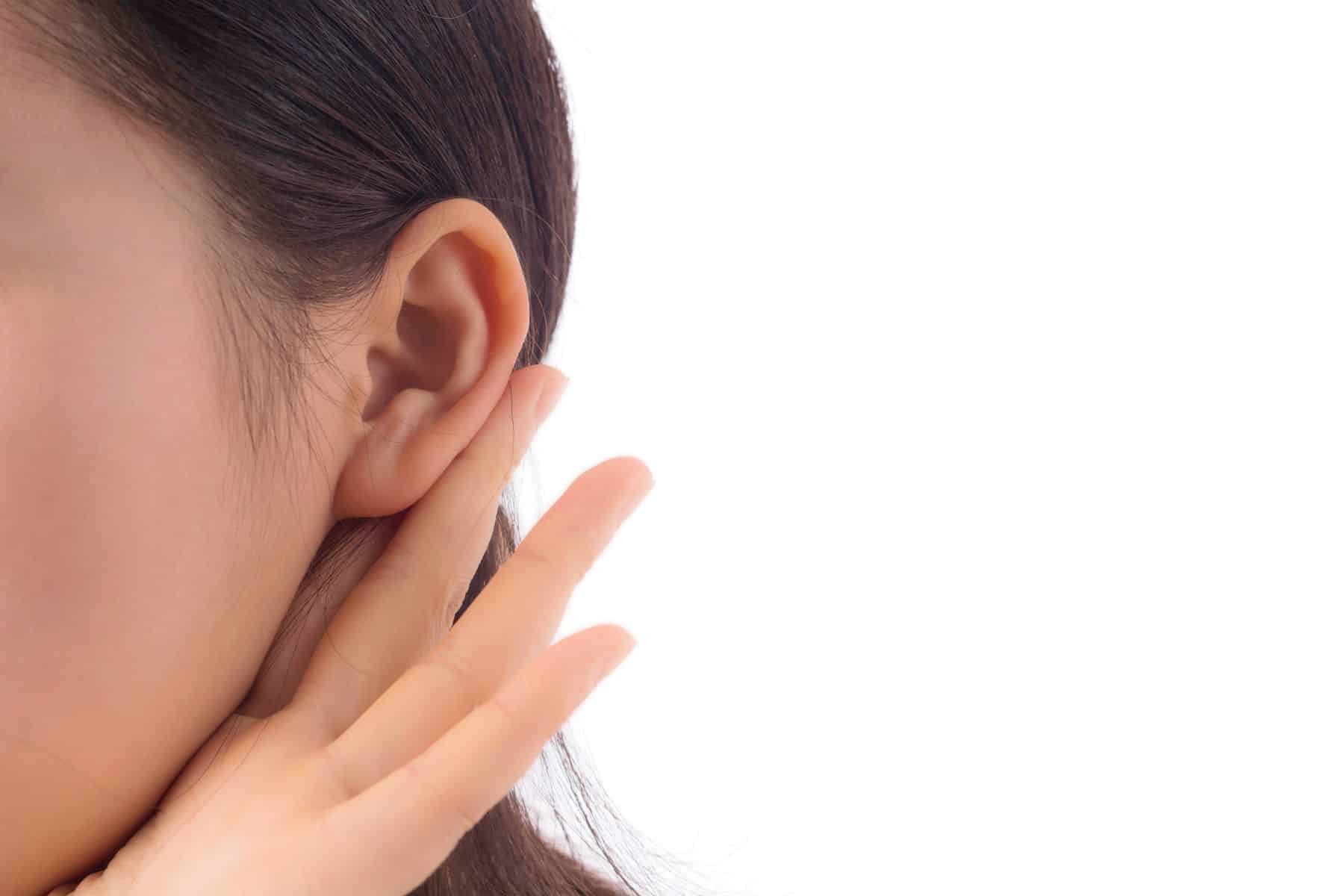
Can Allergies Cause Hearing Loss?
While allergic reactions are commonly associated with complaints such as sneezing, congestion, and itchy eyes, the body’s response to allergens can also trigger auditory issues like temporary hearing loss. This effect occurs due to the inflammatory response from the immune system.
In the Philippines, the constant presence of environmental allergens means that symptoms like congestion are often dismissed as a regular part of life. Because of this, the associated auditory issues, such as muffled hearing or a sensation of fullness in the ears, are often misattributed or overlooked.
Knowledge of how allergies affect the ear is essential for proper management, as it helps distinguish a temporary issue from a more serious underlying condition.
Understanding How Allergies Can Affect Your Hearing
An allergic response triggers an inflammatory cascade that can impact the entire auditory system. The specific effects vary depending on which part of the ear is involved.
The Outer Ear
Airborne allergens can directly affect the outer ear by causing skin reactions, such as allergic dermatitis, inside the ear canal. The resulting inflammation leads to persistent itching, redness, and swelling. In some cases, this swelling can become so significant that it creates a physical obstruction that muffles or blocks incoming sound.
The Middle Ear
The middle ear is where the most common allergy-related hearing issues originate. It is connected to the back of the throat by the Eustachian tube, a narrow channel responsible for regulating pressure and draining fluid. During an allergic reaction, the lining of this tube can swell and become blocked.
An obstructed Eustachian tube prevents proper drainage, causing fluid to become trapped in the middle ear. This condition, known as otitis media with effusion, prevents the eardrum and tiny middle ear bones from vibrating properly. The result is a temporary conductive hearing loss, which is often experienced as muffled hearing. Over time, this congestion can also increase the risk of painful middle ear infections.
The Inner Ear
While less common, allergies can also affect hearing at the inner ear level. Systemic inflammation can increase the fluid pressure within the delicate structures of the cochlea (the hearing organ) and the vestibular system (the balance organ).
For individuals with pre-existing conditions like Meniere’s disease, an allergic reaction can trigger or worsen debilitating issues such as severe dizziness (vertigo), tinnitus (ringing in the ears), and fluctuating hearing loss.
Spotting the Signs of Allergy-Related Hearing Trouble
The auditory indications of an allergic reaction can be subtle and are often mistaken for simple nasal congestion. Paying attention to specific changes in your hearing during an allergy flare-up is the primary way to identify the issue.
Common indicators that your allergies may be impacting your hearing include:
- Muffled or Diminished Hearing: A noticeable reduction in hearing clarity, where sounds may seem distant or muffled.
- A Sensation of Fullness or Pressure: A persistent feeling of pressure in the ears, often described as a “clogged” sensation.
- Tinnitus: The appearance of or increase in tinnitus, which is the perception of a ringing, buzzing, or hissing sound.
- Popping or Crackling Sounds: Audible popping or crackling in the ears, which can indicate that the Eustachian tube is struggling to regulate pressure.
- Difficulty Following Conversations: Increased difficulty understanding speech, especially in environments with background noise, which becomes more pronounced during allergy flare-ups.
Management Options for Allergy-Induced Hearing Loss
Managing hearing loss from allergies begins with addressing the underlying allergic reaction. Because the auditory issue is often a sign of a larger inflammatory response, focusing on the cause is the foundational approach.
Managing the Allergic Reaction
Consulting a doctor is the recommended starting point. A specialist may recommend or prescribe appropriate solutions, such as decongestants or nasal sprays, to reduce inflammation that blocks the Eustachian tube. For long-term control, allergy shots or immunotherapy may be suggested.
Supporting Auditory Function
If hearing difficulties persist while the allergy is being addressed, other solutions can improve sound clarity.
- Hearing Aids: For severe to profound cases of hearing loss, an appropriately programmed hearing aid can be a beneficial solution. These can be adjusted to compensate for the specific sound frequencies affected by fluid in the middle ear.
- Assistive Listening Devices: Non-surgical options, such as assistive listening devices, can also offer support in challenging listening environments, like during conversations in noisy places.
- BAHA (Bone anchored heating aids): Non surgical options for patients that have conductive hearing loss, atresia or recurrent ear infection.
Reducing Recurrence
A reliable way to lower the risk of recurring hearing issues is through the consistent, long-term control of your allergies. This should always be done under the guidance of a qualified physician to ensure a safe and appropriate plan for your specific needs.
Prevention and Management Tips
Some of the ways you can reduce your exposure and regulate your response to allergy triggers include the following:
- Avoid Known Allergens: A foundational strategy is to identify and avoid your specific allergy triggers, whether they are pollen, dust mites, pet dander, or mold.
- Protect Your Ears: In environments with high allergen exposure, such as during outdoor activities or in dusty workplaces, wearing custom earplugs can help reduce the amount of airborne allergens that enter the ear canal.
- Schedule Regular Screenings: For chronic allergies, it is wise to have periodic check-ups with an allergist. Additionally, incorporating an adult hearing screening into your routine wellness checks in the Philippines can help monitor your auditory function and detect any changes early.
- Maintain Healthy Lifestyle Practices: A balanced diet, regular exercise, and adequate hydration contribute to overall wellness and may help the body regulate its response to allergens.
Allergies vs. Sudden Hearing Loss
The ability to distinguish between allergy-related hearing loss and a more serious condition, such as Sudden Sensorineural Hearing Loss (SSHL), directly impacts your long-term hearing health. Attributing the manifestations of SSHL to an allergy can lead to a significant delay in receiving urgent care, which can negatively affect the chances of a successful recovery.
For this reason, any sudden drop in your hearing should never be dismissed as just a symptom of an allergy.
Characteristics of Allergy-Related Hearing Loss
Hearing difficulties linked to allergies typically develop gradually and coincide with other signs of allergy, such as congestion and pressure. The condition is usually temporary, frequently affects both ears, and resolves as the allergy symptoms subside. It is a conductive hearing loss caused by fluid or swelling in the middle ear.
Characteristics of Sudden Sensorineural Hearing Loss (SSHL)
SSHL is considered an emergency. It involves a sudden, unexplained loss of hearing, which often occurs in only one ear. The loss can occur instantly or develop over several days. As a sensorineural loss, it involves damage to the inner ear or the auditory nerve. Potential causes can include head trauma, infections, autoimmune conditions, or neurological diseases, and manifestations often include a sudden feeling of fullness, loud tinnitus, and severe dizziness.
When to See a Professional

Although many ear-related indicators from allergies are temporary, certain signs suggest the need for a professional evaluation by an otolaryngologist or an ENT. A timely assessment is a fundamental part of protecting your long-term auditory well-being.
A consultation is recommended if:
- Your hearing does not return to normal after allergy symptoms have subsided.
- You experience a sudden, significant change in hearing, with or without allergy triggers.
- Your complaints include severe ear pain, significant dizziness (vertigo), or loud, persistent tinnitus.
Consult an ENT for an Assessment
Although allergies can cause temporary hearing loss, the most important point to remember is to approach any change in your hearing with caution. However, it can be misleading to attribute all auditory symptoms to an allergy automatically. Sudden or persistent changes in your hearing may signal a more serious underlying condition, like SSHL, that requires a prompt consultation with a specialist.
To understand the proper course of action for your hearing, consult a hearing care professional for a comprehensive assessment.










